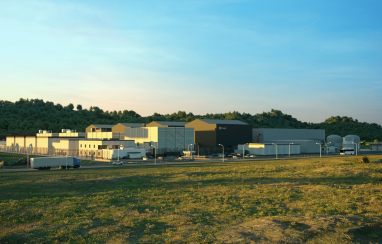- nike air force with skinny jeans girls , Manor PHX – Cheap Ietp Jordan Outlet , Premium Footwear & Streetwear Boutique
- Украина #126535155 , Женские кроссовки nike jordan white black pink — цена 2549 грн в каталоге Кроссовки ✓ Купить женские вещи по доступной цене на Шафе , Air Jordan 2 Retro Low Gym Red x Jordan AJ 2 23 Wings T-Shirt
- nike outlets have jordans
- bb8587 adidas women sneakers new release
- AspennigeriaShops , Nike gra Blazer Low 77 Vintage Arriving in Midnight Navy , 7 Best Nike gra Running Shoes in 2024
- air jordan 1 mid chicago 2020 554724 173
- Nike Blazer Mid 77 Catechu DC9265 101 Release Date
- air jordan 4 og fire red DC7770 160 release details price
- all star air jordan 1 gotta shine
- Air Jordan 1 Paisley Bandana Release Date
- Home
- News and analysis
- Info hubs
- Events
- Video
- Case Studies
- About us
- Magazine
- Advertising
Produced for the industry by the Association for Consultancy and Engineering
News
Government sets out ‘biggest expansion of nuclear power for 70 years’

The government has outlined plans for the biggest expansion of nuclear power for 70 years to reduce electricity bills, support thousands of jobs and improve UK energy security.
This includes exploring building a major new power station and investing in advanced nuclear fuel production.
The government’s Civil Nuclear Roadmap intends to give industry certainty of the future direction of the UK’s nuclear programme, on top of the government’s commitment to Sizewell C and world-leading competition to develop small modular reactor (SMR) technology.
The roadmap sets out how the UK will increase generation of this homegrown supply of clean, reliable, and abundant energy by up to four times to 24 gigawatts (GW) by 2050 – enough to provide a quarter of the UK’s electricity needs.
The plans include next steps for exploring a GW-scale power plant as big as Sizewell in Suffolk or Hinkley in Somerset, which are capable of powering six million homes each.
The government will also invest up to £300m in UK production of the fuel required to power high-tech new nuclear reactors, known as HALEU, currently only commercially produced in Russia.
An additional £10m will be provided to develop the skills and sites needed to produce other advanced nuclear fuels in the UK, helping to secure long term domestic nuclear fuel supply and support our allies.
The roadmap also includes a government ambition to secure 3–7GW worth of investment decisions every five years from 2030 to 2044 on new nuclear projects.
Prime Minister Rishi Sunak said: “Nuclear is the perfect antidote to the energy challenges facing Britain - it’s green, cheaper in the long term and will ensure the UK’s energy security for the long-term.
“This is the right long-term decision and is the next step in our commitment to nuclear power, which puts us on course to achieve net zero by 2050 in a measured and sustainable way. This will ensure our future energy security and create the jobs and skills we need to level up the country and grow our economy.”
Industry bosses have been swift to welcome the announcement.
Chris Conboy, managing director – Nuclear & Power EMEA, AtkinsRéalis, said: “The UK has placed nuclear at the heart of its net zero energy plans and today’s Civil Nuclear Roadmap is a positive step towards realising the ambitious nuclear capacity target of 24GW by 2050.
“Hinkley Point C and the proposed Sizewell C nuclear plants will be cornerstones of the UK’s future energy mix, and this roadmap rightly addresses the potential development of further projects to provide resilient, net zero energy supply and meet the UK’s nuclear goals.
“Meeting the UK’s net zero energy goals will require a significant increase in the build rate of new generating capacity and the focus on future sites and support for both large and small-scale projects will help to attract further investment in nuclear and maintain momentum across the UK’s supply chain.”
Alan Sinclair, director, UK head of natural resources at Turner & Townsend, added: “The Civil Nuclear Roadmap is a welcome reassertion of Government’s commitment to Great British Nuclear announced last summer and to increasing the UK’s nuclear power generation four-fold by 2050.
“Delivering this growth in capacity will clearly be an immense task and will take private investment as well as the public funding already laid out.
“A consistent direction of travel is fundamental to providing investors with the confidence to back programmes across the sector.
“A clear, stable pipeline of work will also be crucial to building the specialist skills and supply chain needed for the scale and complexity of nuclear power projects.
“As we head towards a general election, we need government to maintain this steady course – regardless of the outcome at the ballot boxes.”
Plans to streamline the development of new power stations and introduce smarter regulation could speed up the overall process and, as a result, the delivery of nuclear power in the UK.
This includes allowing regulators to assess projects while designs are finalised, and better join-up with overseas regulators assessing the same technology.
Ministers will bring together the brightest and best from the nuclear industry and beyond as part of a ‘hackathon’ event to come up with ideas on how government and industry can accelerate new nuclear projects, while maintaining the highest levels of safety and security.
These plans will help build new supplies of affordable and clean domestic power so the transition to net zero doesn’t mean higher prices, protecting households from global instability.
The government is also publishing two consultations, one on a new approach to siting future nuclear power stations and another on supporting the sector and encouraging private investment to roll out advanced nuclear projects.
The proposals will attract investment in the UK nuclear sector by empowering developers to find suitable sites rather than focusing on eight designated by government.
Community engagement will remain critical to any decisions, alongside maintaining robust criteria such as nearby population densities.
Following its launch last year, Great British Nuclear (GBN) will drive the UK’s nuclear ambitions forward, including through the game changing SMR competition which will soon invite short-listed companies to tender.
Unlike conventional nuclear reactors that are built on site, SMRs are smaller, can be made in factories, and could transform how power stations are built by making construction faster and less expensive.
Alongside large gigawatt power stations, SMRs will play a key role in delivering on the expansion of UK nuclear capacity.
As well as powering homes, innovations in the nuclear sector could provide direct heat for industry, energy for green hydrogen production, and medical isotopes for the diagnosis and treatment of cancer.
Analysis by the Nuclear Skills Strategy Group suggests that to reach up to 24GW, the civil and defence nuclear workforce will need to double over the next 20 years – supporting around 80,000 additional skilled jobs across the UK.
The Nuclear Skills Taskforce will shortly set out plans to meet the demand of an industry - already worth £6bn to the British economy - which is likely to include increasing the numbers of graduates and apprentices and attracting mid-careerists with relevant skills and expertise.





